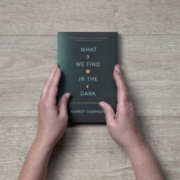What Aussies are most hoping for Christmas this year
By: McCrindle
Christmas is the season of spending time with family and gifting presents to loved ones. It can be difficult to know what to buy, and in our latest research we explore the types of gifts Aussies are most hoping for this year … and the worst ones too!
Time with loved ones, cash and nothing at all top Aussies Christmas list this year
Exploring what Aussies are most hoping for this year yields fascinating insights about what is on the heart of Australians. Time with loved ones is what most of us are hoping for this year (13%). Equally, we are a practical bunch with 13% of us also most hoping for cash. A further 12% of Aussies are actually hoping for nothing this year, in perhaps another swing against the consumerism of Christmas. Another 12% are also hoping for travel-related gifts.
“The fact that the majority of Aussies are most hoping for time with loved ones points to a deeper appreciation of Christmas than just gift giving. A quarter of Australians (25%) are most hoping for something other than a material gift this Christmas – either time with loved ones (13%) or nothing at all (12%). The gifts we do hope for are not meaningless material items but are quite practical and experienced based – cash or travel opportunities. While Christmas provides an opportunity to be generous, Aussies are pushing back on the consumerism that can be characteristic of the Christmas season, instead hoping for the things money can’t buy.” – Ashley Fell, Social Researcher
While 12% of Aussies aren’t hoping for anything this year, a fifth (21%) believe they are also most likely to receive nothing for Christmas this year. There are some of us who will receive material gifts, with clothing, shoes and accessories (11%) topping the most likely to receive material gift list, followed by food or beverages (9%).
What do you think you are most likely to receive?
Ornamental gifts and socks top the worst type of Christmas present list
When it comes to the worst type of Christmas present, ornamental pieces top the list with 19% of Aussies agreeing that these types of presents are the worst to receive. This is followed by small clothing items (13%), bathroom collateral (12%) and scented items like candles (10%).
Mums declared the best gift givers, followed by spouse/partner
When it comes to the best Christmas gift givers, mums take top rank with a quarter of Australians (24%) voting mum as the top gift giver. Spouse or partner comes in at a close second (23%), showing that those who tend to know you most, give the best presents. Mothers are in fact close to 5 times more likely than fathers, close friends, a brother or a sister to give better presents.
Watch out for the work Secret Santa, as the Work colleague (12%) deemed likely to give the worst gifts.
Aussies will give unwanted gifts to charity before regifting them
When Aussies are asked what they’d do with Christmas presents they don’t want or need, 1 in 4 (25%) said they would give it to charity. A further one in five (21%) would keep it and use it out of obligation and the same proportion (21%) would re-gift it to someone else. Perhaps finding out what the recipient would like before deciding what to buy – or sticking to cash – is the best option to avoid gifted presents winding up on the shelf.
Is Christmas contributing to increased consumerism and waste?
Last year, more than half of Australians (55%) received on average 1.29 presents they considered unnecessary and a waste. Almost 1 in 10 (8%) received 4 or more presents they didn’t need. Last Christmas, Australians received 32.5 million unnecessary presents. That means, with 1 in 5 (21%) saying they regift presents they don’t want, 6.8 million presents will be regifted this year!
Furthermore, the average value of an unnecessary present was $8. Which isn’t much at face value but when multiplied by the number of unnecessary presents, it brings the total average value to $260 million. That is the equivalent of sponsoring 451,382 Compassion children for a year, restoring the sight of up to 10.4 million people through the Fred Hollows Foundation or providing 416,660 disadvantaged Australian children through The Smith Family with school essentials, guidance support and out-of-school educational opportunities.

Article supplied with thanks to McCrindle.
About the Author: McCrindle are a team of researchers and communications specialists who discover insights, and tell the story of Australians – what we do, and who we are.


